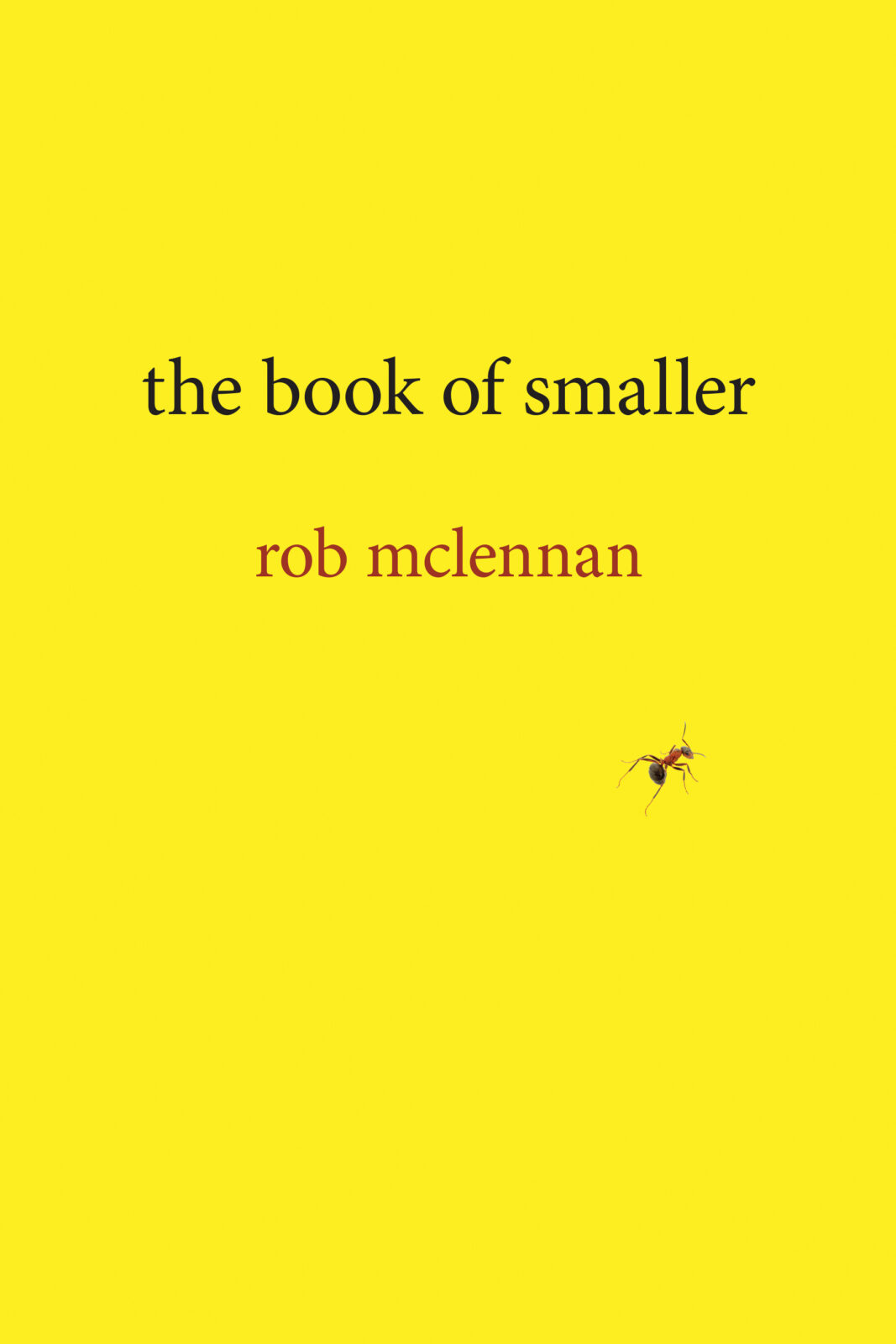From contemporary politics to contemplations of language, all is shared through mclennan’s innovative and bite-sized prose. Each piece is a minimalist stanza of concise lines made up of short phrases between periods acting as horizontal line breaks. With such compact structure and mclennan’s evocative style, every phrase is explosive and apt to transform the poem, transport the reader, inventory a scene, or abruptly interrupt it by capturing the chaos of a moment. mclennan’s wide as opposed to long structure also allows not just lines but the series of phrases within each line to be read in multiple ways. In poems like “Self-portrait, extant,” form becomes a double entendre to meaning: “We pretend we’re the centre. We have to. Take every precaution.” The centralized “we have to” can be applied to either phrase equivocally. With no poem taking up more than a third of the page, and with the weight such minimalist structure gives each word, the collection becomes a literary cheesecake—deeply rich in its small slices.

Like strong haikus, mclennan’s poems ground moments in the shared experiences of the reader. We are with the author as he experiences “January rain” in “Reading Ed Dorn in Vancouver” and hears “Thunder rolls, or a heavy truck” (“Journal entry”). We are brought into early spring by things as seemingly benign as “unfrozen garbage / in the driveway” (“Spring journal”). mclennan beautifully encapsulates the otherwise not-so-beautiful Ottawa winter experience, with its days of “all sunshine and whiteouts” and its seemingly unending presence as demonstrated in a series of poems throughout the collection all titled “It’s still winter” (“February”). mclennan powerfully uses nature to invoke a shared experience with the reader, but the book of smaller’s real talent is its ability to transport you to the intimate setting of home and family life.
Many can relate to the hectic schedule of domestic life and the necessity for quiet moments when they can be had. Such moments of chaos are beautifully depicted by the collection’s choppy structure in poems like “Sustenance,” where “Where’s her school bag? Put your socks on. Chew” takes us right to the kitchen table as the family gets ready for the day. In contrast to such chaotic moments, the calm between storms is shared, like in “Journal entry”: “Today’s postman, rings. The sentence dissolves. The baby squawks, happily. Wakeful. A human, being.”
With powerful use of minimalist writing and a daring use of form, rob mclennan shows us a world of enchantment. Personified empty garbage bins “feel such rain” as the seasons themselves are embodied in rain-booted children (“Sustenance”). the book of smaller is letting the snowdrop melt on your tongue in a magical world best seen when you sit with its intimate moments closely.
Bios
Jordan Prato
Born in Toronto and raised in the sticks of Tweed, Ontario, Jordan Prato is a Carleton University Alumni and school teacher. [updated November 2023]

